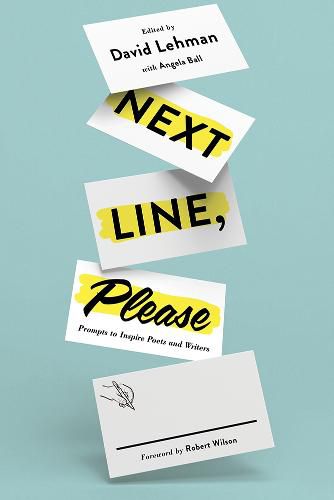Readings Newsletter
Become a Readings Member to make your shopping experience even easier.
Sign in or sign up for free!
You’re not far away from qualifying for FREE standard shipping within Australia
You’ve qualified for FREE standard shipping within Australia
The cart is loading…






In this book, David Lehman, the longtime series editor of the Best American Poetry, offers a masterclass in writing in form and collaborative composition. An inspired compilation of his weekly column on the American Scholar website, Next Line, Please makes the case for poetry open to all. Next Line, Please gathers in one place the popular column’s plethora of exercises and prompts that Lehman designed to unlock the imaginations of poets and creative writers. He offers his generous and playful mentorship on forms such as the sonnet, haiku, tanka, sestina, limerick, and the cento and shares strategies for how to build one line from the last. This groundbreaking book shows how pop-up crowds of poets can inspire one another, making art, with what poet and guest editor Angela Ball refers to as spontaneous feats of language.
How can poetry thrive in the digital age? Next Line, Please shows the way. Lehman writes, There is something magical about poetry, and though we think of the poet as working alone, working in the dark, it is all the better when a community of like-minded individuals emerges, sharing their joy in the written word.
$9.00 standard shipping within Australia
FREE standard shipping within Australia for orders over $100.00
Express & International shipping calculated at checkout
In this book, David Lehman, the longtime series editor of the Best American Poetry, offers a masterclass in writing in form and collaborative composition. An inspired compilation of his weekly column on the American Scholar website, Next Line, Please makes the case for poetry open to all. Next Line, Please gathers in one place the popular column’s plethora of exercises and prompts that Lehman designed to unlock the imaginations of poets and creative writers. He offers his generous and playful mentorship on forms such as the sonnet, haiku, tanka, sestina, limerick, and the cento and shares strategies for how to build one line from the last. This groundbreaking book shows how pop-up crowds of poets can inspire one another, making art, with what poet and guest editor Angela Ball refers to as spontaneous feats of language.
How can poetry thrive in the digital age? Next Line, Please shows the way. Lehman writes, There is something magical about poetry, and though we think of the poet as working alone, working in the dark, it is all the better when a community of like-minded individuals emerges, sharing their joy in the written word.